Charles Burnett
Nacimiento : 1944-04-13, Vicksburg, Mississippi, USA
Historia
Charles Burnett is an American film director, producer, writer, editor, actor, photographer, and cinematographer. His most popular films include Killer of Sheep (1977), My Brother’s Wedding (1983), To Sleep with Anger (1990), The Glass Shield (1994), and Namibia: The Struggle for Liberation (2007). He has been involved in other types of motion pictures including shorts, documentaries, and a TV series.
Considered by the Chicago Tribune as “one of America’s very best filmmakers”, and by the New York Times as “the nation’s least-known great filmmaker and most gifted black director”, Charles Burnett has had a long and diverse filmmaking career.
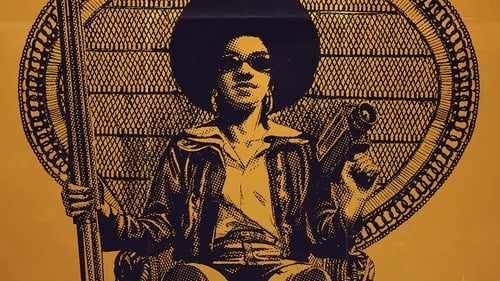
Self
El crítico de cine estadounidense Elvis Mitchell explora la revolución negra en el cine de la década de 1970, desde películas de género hasta realismo social, desde la creación de nuevas superestrellas hasta el oficio de autores emergentes. Relata sus propias experiencias como espectador mientras detalla las historias cinematográficas y políticas que llevaron a este extraordinario florecimiento de un recién ascendido Heroísmo negro.

lui-même

Director
A global portrait documenting the year's events, Cinetracts '20 features the work of an international lineup of 20 filmmakers. Capturing the zeitgeist in their own backyard, the artists' short films are the culmination of a year-long residency project.

Himself
Filmmaker Robert Townsend executive-produced the following fifty-six-minute program for Criterion’s Meet the Filmmakers series in 2018. In it, he and Charles Burnett reflect on Burnett’s groundbreaking career in cinema, returning to South Central Los Angeles and the shooting locations of his landmark films KILLER OF SHEEP and TO SLEEP WITH ANGER.

Director
Tells the poignant chapter in the historic struggle to secure equal and adequate access to healthcare for all Americans. Central to the story is the tale of how a new national program, Medicare, was used to mount a dramatic, coordinated effort that desegregated thousands of hospitals across the country in a matter of months.

Self
How did America change from Easy Rider into Donald Trump? What became of the dreams and utopias of the 1960's and 1970's? What do the people who lived in that golden age think about it today? Did they really blow it? Shot in Cinemascope - from New Jersey to California - this melancholic and elegiac road-movie draws upon the portrait of a confused, complex and incandescent America one year after the start of the electoral campaign. That golden age has become its last romantic border and an inconsolable America is about to pull on a trigger called Trump.

What does it mean to be Black in America in the 21st century? The recently formed Black American film group TNEG™ has set out to elucidate this very question. Hearing from the likes of fine artist Kara Walker and musical artist Flying Lotus, the film is based on a deceptively simple approach -- asking a refined list of black 'specialists' as well as 'uncommon folks' questions about what they think, and more importantly as lead director Arthur Jafa states, 'What they KNOW' -- the film is an unprecedented 'stream of the black consciousness' and a strikingly original and rarefied look at black intellectual and emotional life. What's so unorthodox about this simple approach is that the interviews were recorded separately from the images in the film. What results is a breathtaking, kaleidoscopic look of American black life from the dawn of three original filmmakers.

Self
¿Qué tienen en común películas como Casablanca, El Padrino y West Side Story? Además de su popularidad, han sido consideradas “significativas desde un punto de vista cultural, histórico o estético” por la Biblioteca del Congreso de los Estados Unidos y catalogadas en el Registro Nacional de Cinematografía, un listado de los tesoros del cine norteamericano que refleja la diversidad de las películas, y por lo tanto de la misma experiencia de Norteamérica. Cada año se añaden 25 películas al Registro. La lista actual de 525 películas incluye títulos de todas las categorías: documentales, clásicos de Hollywood, cine de vanguardia, cortos y cine mudo. El documental These Amazing Shadows es un detallado dossier de la rica y extensa filmografía estadounidense, no sólo desde un punto de vista cinéfilo, sino también cultural y humano.

Director
Película de episodios en la que conocidos autores cinematográficos plantean sus ideas acerca de los sueños.

Director
After the death of his father, a former football star reunites with the family that he abandoned years earlier.

Producer
A teenage boy leaves a moment of boredom while his father works on his old car, and the mother wishes to go out for a stroll around the block. One more relocated family post Hurricane Katrina.

Editor
A teenage boy leaves a moment of boredom while his father works on his old car, and the mother wishes to go out for a stroll around the block. One more relocated family post Hurricane Katrina.

Cinematography
A teenage boy leaves a moment of boredom while his father works on his old car, and the mother wishes to go out for a stroll around the block. One more relocated family post Hurricane Katrina.

Writer
A teenage boy leaves a moment of boredom while his father works on his old car, and the mother wishes to go out for a stroll around the block. One more relocated family post Hurricane Katrina.

Director
A teenage boy leaves a moment of boredom while his father works on his old car, and the mother wishes to go out for a stroll around the block. One more relocated family post Hurricane Katrina.

Writer
Namibia: The Struggle for Liberation is a 2007 epic film on the Namibian independence struggle against South African occupation as seen through the life of Sam Nujoma, the leader of the South-West Africa People's Organisation and the first president of the Republic of Namibia.

Director
Namibia: The Struggle for Liberation is a 2007 epic film on the Namibian independence struggle against South African occupation as seen through the life of Sam Nujoma, the leader of the South-West Africa People's Organisation and the first president of the Republic of Namibia.

Writer
Director Charles Burnett (Killer of Sheep, My Brother's Wedding, To Sleep with Anger) presents a tale about a young boy's encounter with his family in Mississippi in the 1950s, and intergenerational tensions between the heavenly strains of gospel and the devilish moans of the blues.

Director
Director Charles Burnett (Killer of Sheep, My Brother's Wedding, To Sleep with Anger) presents a tale about a young boy's encounter with his family in Mississippi in the 1950s, and intergenerational tensions between the heavenly strains of gospel and the devilish moans of the blues.

Lucinda
In 1831, Nat Turner led a slave rebellion in the United States that resulted in the murder of local slave owners and their families, the eventual execution of 55 rebels and the retribution lynching of more than 200 innocent slaves. Nat Turner: A Troublesome Property examines how the story of Turner’s revolt has been interpreted throughout history and how it continues to raise new questions about the nature of terrorism and other forms of violent resistance to oppression. The film adopts an innovative structure by interspersing documentary footage and interviews with dramatizations of these different versions of Turner’s story. A unique collaboration between MacArthur Genius Award feature director Charles Burnett, acclaimed historian of slavery Kenneth S. Greenberg and Academy Award-nominated documentary producer Frank Christopher, Nat Turner is a compelling look at one of history’s most mysterious figures.

Writer
In 1831, Nat Turner led a slave rebellion in the United States that resulted in the murder of local slave owners and their families, the eventual execution of 55 rebels and the retribution lynching of more than 200 innocent slaves. Nat Turner: A Troublesome Property examines how the story of Turner’s revolt has been interpreted throughout history and how it continues to raise new questions about the nature of terrorism and other forms of violent resistance to oppression. The film adopts an innovative structure by interspersing documentary footage and interviews with dramatizations of these different versions of Turner’s story. A unique collaboration between MacArthur Genius Award feature director Charles Burnett, acclaimed historian of slavery Kenneth S. Greenberg and Academy Award-nominated documentary producer Frank Christopher, Nat Turner is a compelling look at one of history’s most mysterious figures.

Director
In 1831, Nat Turner led a slave rebellion in the United States that resulted in the murder of local slave owners and their families, the eventual execution of 55 rebels and the retribution lynching of more than 200 innocent slaves. Nat Turner: A Troublesome Property examines how the story of Turner’s revolt has been interpreted throughout history and how it continues to raise new questions about the nature of terrorism and other forms of violent resistance to oppression. The film adopts an innovative structure by interspersing documentary footage and interviews with dramatizations of these different versions of Turner’s story. A unique collaboration between MacArthur Genius Award feature director Charles Burnett, acclaimed historian of slavery Kenneth S. Greenberg and Academy Award-nominated documentary producer Frank Christopher, Nat Turner is a compelling look at one of history’s most mysterious figures.

Director
When an 11 year old boy gets cut from his Little League baseball team, he sets out to form his own team.

Director
A woman who believes a dead composer is in love with her falls in love with a man who constantly fights an imaginary man named Hank.
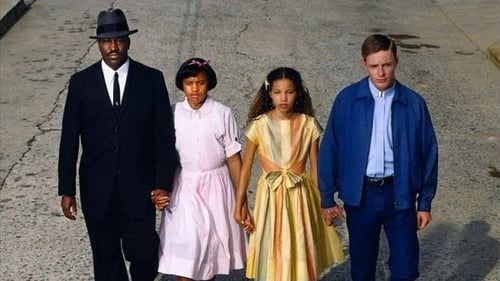
Director
In 1965 Alabama, an 11 year old girl is touched by a speech by Martin Luther King, Jr. and becomes a devout follower. But her resolution is tested when she joins others in the famed march from Selma to Montgomery.

Director
Una joven negra, Shelby, se enamora de un músico de jazz blanco llamado Meade. Desgraciadamente, los padres de éste no la aceptan por ser negra. Pese a que los parientes de Shelby no tienen problemas con eso, todo cambia cuando aparece un atractivo joven negro llamado Lute, que intentará ganarse el amor de la joven a cualquier precio.

Writer
This video work intermingles fiction with actuality in a poignant confrontation with homelessness.

Cinematography
This video work intermingles fiction with actuality in a poignant confrontation with homelessness.

Director
This video work intermingles fiction with actuality in a poignant confrontation with homelessness.

Director
John is a man of many talents, including one forbidden skill: he can read. When he teaches a young slave girl named Sarny to read and write, she learns an unforgettable lesson about the power of words and the true meaning of freedom.

Writer
A musician spends New Year's Day trying to help his friend pay the rent.

Director
A musician spends New Year's Day trying to help his friend pay the rent.

Writer
Johnny 'J.J.' Johnson (Michael Boatman) es un novato en el departamento de policía, y el primer oficial de color en dicha comisaría. Las tensiones raciales aumentan con su llegada, pues varios compañeros del departamento no les agrada su presencia. El único amigo real de J.J. es la otra novata (Lori Petty), también la primera mujer que trabaja en la comisaría... (FILMAFFINITY)

Director
Johnny 'J.J.' Johnson (Michael Boatman) es un novato en el departamento de policía, y el primer oficial de color en dicha comisaría. Las tensiones raciales aumentan con su llegada, pues varios compañeros del departamento no les agrada su presencia. El único amigo real de J.J. es la otra novata (Lori Petty), también la primera mujer que trabaja en la comisaría... (FILMAFFINITY)

Camera Operator
Sa-I-Gu, literally translated in Korean as April 29, is the day of the 1992 Los Angeles riots or uprising. Three months after the events, the documentary explores the experience of several Korean American women who were caught in the events.

Cinematography
Looks at the United States as it becomes an increasingly diverse nation. Tracing the history of significant changes in the Immigration and Nationality Act beginning in 1965, this program introduces a dramatic vision of a multi-cultural America where people of color are the new majority. The feelings and stories of ordinary people are featured in everyday context in six cities across the county. Interviews with residents of Chicago, Houston, Philadelphia, Miami and several other places probe the changing relationships between newcomers and established residents.

Writer
Looks at the United States as it becomes an increasingly diverse nation. Tracing the history of significant changes in the Immigration and Nationality Act beginning in 1965, this program introduces a dramatic vision of a multi-cultural America where people of color are the new majority. The feelings and stories of ordinary people are featured in everyday context in six cities across the county. Interviews with residents of Chicago, Houston, Philadelphia, Miami and several other places probe the changing relationships between newcomers and established residents.

Director
Looks at the United States as it becomes an increasingly diverse nation. Tracing the history of significant changes in the Immigration and Nationality Act beginning in 1965, this program introduces a dramatic vision of a multi-cultural America where people of color are the new majority. The feelings and stories of ordinary people are featured in everyday context in six cities across the county. Interviews with residents of Chicago, Houston, Philadelphia, Miami and several other places probe the changing relationships between newcomers and established residents.
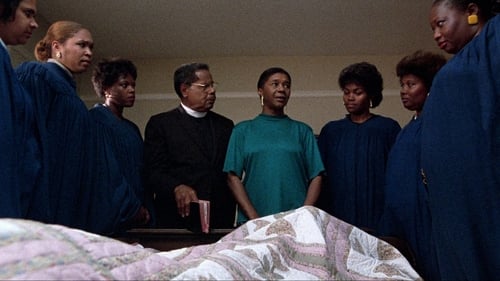
Writer
An enigmatic drifter from the South comes to visit an old acquaintance who now lives in South-Central LA.

Director
An enigmatic drifter from the South comes to visit an old acquaintance who now lives in South-Central LA.

Director of Photography
With dreams of fame and fortune, Faith goes to Washington where she quickly discovers that the life of a budding starlet can be tougher than the ghetto hell she left behind.

Director of Photography
Conflicts arise when a middle aged African American school teacher decides to visit her father's homeland of communist Cuba.
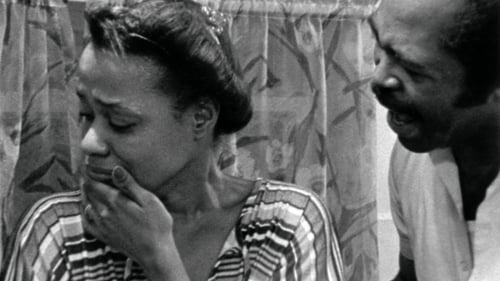
Director of Photography
Charlie Banks, chronically unemployed, struggles to find dignity and a meaning for life in poorer districts of South Central Los Angeles.

Writer
Charlie Banks, chronically unemployed, struggles to find dignity and a meaning for life in poorer districts of South Central Los Angeles.
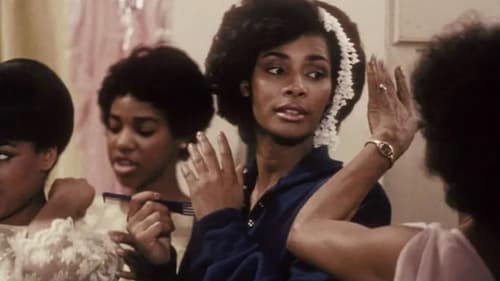
Director of Photography
A man who despises his upwardly mobile lawyer brother reluctantly agrees to be best man at his wedding.

Producer
A man who despises his upwardly mobile lawyer brother reluctantly agrees to be best man at his wedding.

Writer
A man who despises his upwardly mobile lawyer brother reluctantly agrees to be best man at his wedding.

Director
A man who despises his upwardly mobile lawyer brother reluctantly agrees to be best man at his wedding.
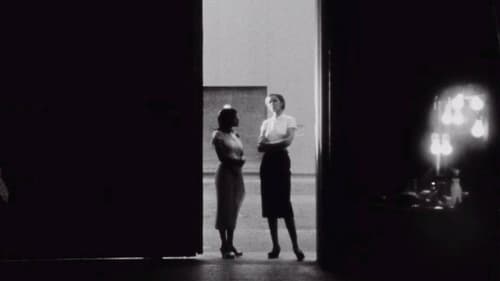
Editor
A woman in a Hollywood dubbing studio struggles with race and preconceptions.

Cinematography
An African American woman living away from her family in Los Angeles yearns to be recognized for more than her physical attributes. In cultivating the friendship of a male office mate, she aspires to a relationship where romance is not a factor, seeking someone who can "see her as she is," rather than see only what he wants to see. (UCLA Film & Television Archive)

Cinematography
In the course of a botched purse-snatching, a boy comes to question the path of his life. Billy Woodberry’s second film, and first completed in 16mm, adapts Langston Hughes’ short story, Thank You, Ma’am, and features music by Leadbelly, Thelonious Monk and Miles Davis. (Ross Lipman)

Cinematography
The story of Dorothy and her husband T.C. He is a discharged Vietnam veteran who thought he would return home to a "hero's welcome." Instead he is falsely arrested and imprisoned for a crime he didn't commit. Her life revolves around the welfare office and a community facing poverty and unemployment. As a result of the film's events, both the main characters become radicalized and Dorothy eventually turns to violence.

Editor
A single mother ekes out a living from welfare check to welfare check, struggling to provide for her daughter.

Director of Photography
A single mother ekes out a living from welfare check to welfare check, struggling to provide for her daughter.
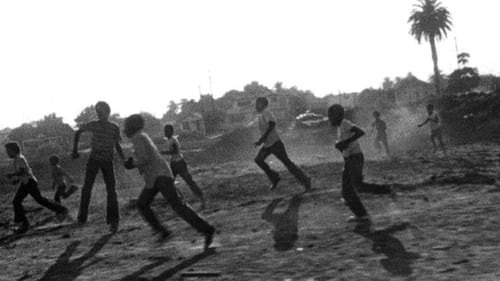
Director of Photography
Stan works in drudgery at a slaughterhouse. His personal life is drab. Dissatisfaction and ennui keep him unresponsive to the needs of his adoring wife, and he must struggle against influences which would dishonor and endanger him and his family.

Editor
Stan works in drudgery at a slaughterhouse. His personal life is drab. Dissatisfaction and ennui keep him unresponsive to the needs of his adoring wife, and he must struggle against influences which would dishonor and endanger him and his family.

Producer
Stan works in drudgery at a slaughterhouse. His personal life is drab. Dissatisfaction and ennui keep him unresponsive to the needs of his adoring wife, and he must struggle against influences which would dishonor and endanger him and his family.

Writer
Stan works in drudgery at a slaughterhouse. His personal life is drab. Dissatisfaction and ennui keep him unresponsive to the needs of his adoring wife, and he must struggle against influences which would dishonor and endanger him and his family.

Director
Stan works in drudgery at a slaughterhouse. His personal life is drab. Dissatisfaction and ennui keep him unresponsive to the needs of his adoring wife, and he must struggle against influences which would dishonor and endanger him and his family.

Editor
This critically acclaimed 1973 short is about an aristocratic white farming family who has a horse that is being put away, by the father of a young black boy named William. William cares for said horse in its last moments, as the male family members eagerly wait for his dad to arrive.

Producer
This critically acclaimed 1973 short is about an aristocratic white farming family who has a horse that is being put away, by the father of a young black boy named William. William cares for said horse in its last moments, as the male family members eagerly wait for his dad to arrive.

Writer
This critically acclaimed 1973 short is about an aristocratic white farming family who has a horse that is being put away, by the father of a young black boy named William. William cares for said horse in its last moments, as the male family members eagerly wait for his dad to arrive.

Director
This critically acclaimed 1973 short is about an aristocratic white farming family who has a horse that is being put away, by the father of a young black boy named William. William cares for said horse in its last moments, as the male family members eagerly wait for his dad to arrive.

Editor
An improvised late '60's short-subject student film, and debut movie of Charles Burnett; done in the neo-realist, documentary film style. A day-in-the-life South Central L.A. tale about a rag-tag group of unemployed black male pals.

Producer
An improvised late '60's short-subject student film, and debut movie of Charles Burnett; done in the neo-realist, documentary film style. A day-in-the-life South Central L.A. tale about a rag-tag group of unemployed black male pals.

Writer
An improvised late '60's short-subject student film, and debut movie of Charles Burnett; done in the neo-realist, documentary film style. A day-in-the-life South Central L.A. tale about a rag-tag group of unemployed black male pals.

Director
An improvised late '60's short-subject student film, and debut movie of Charles Burnett; done in the neo-realist, documentary film style. A day-in-the-life South Central L.A. tale about a rag-tag group of unemployed black male pals.

Cinematography
Filmmaker Thomas Penick explores race, gender and violence in this provocative, disturbing drama set on a hot, summer day in 1969. When a woman accepts a ride from two men at the corner of Western and Adams, the encounter quickly turns ugly, venturing into painful, surreal territory.

















